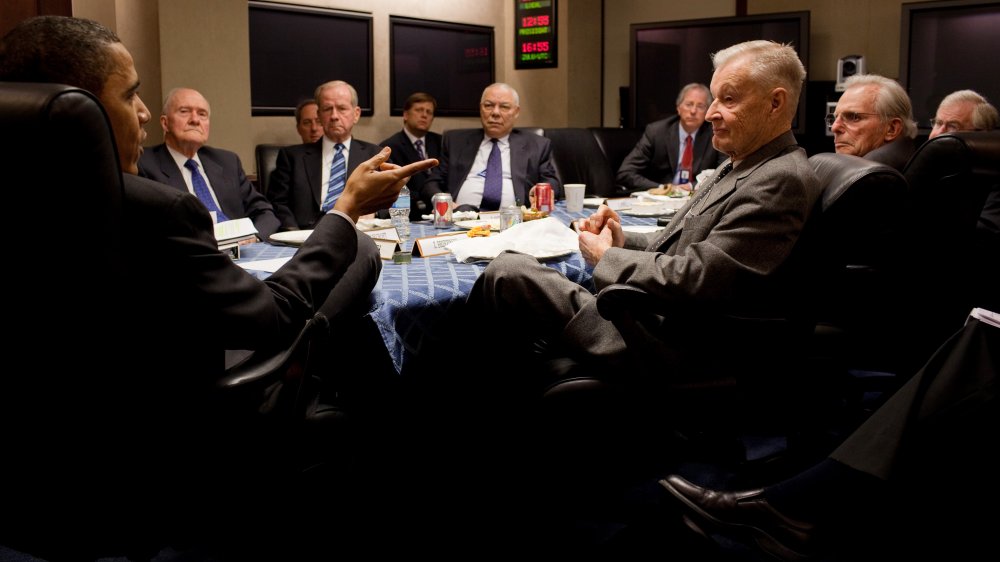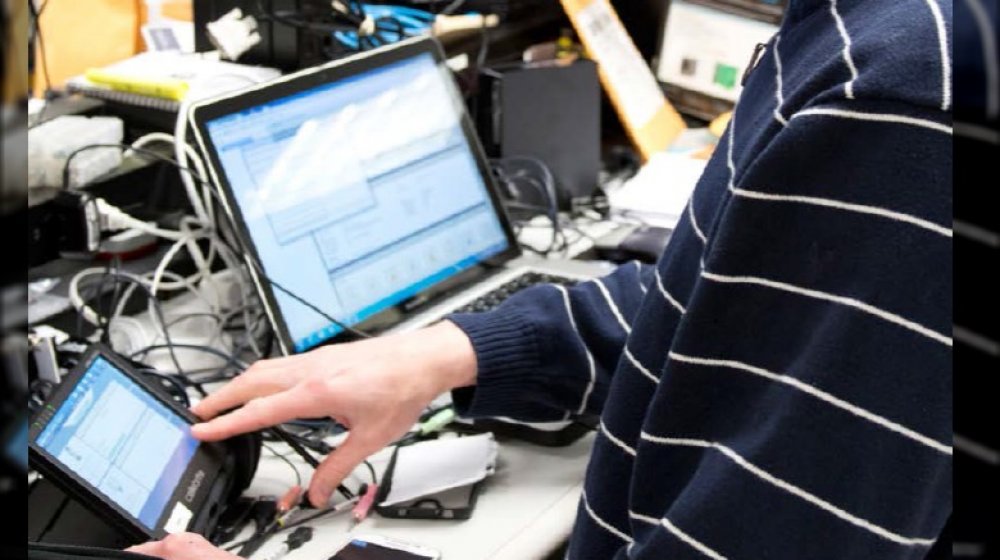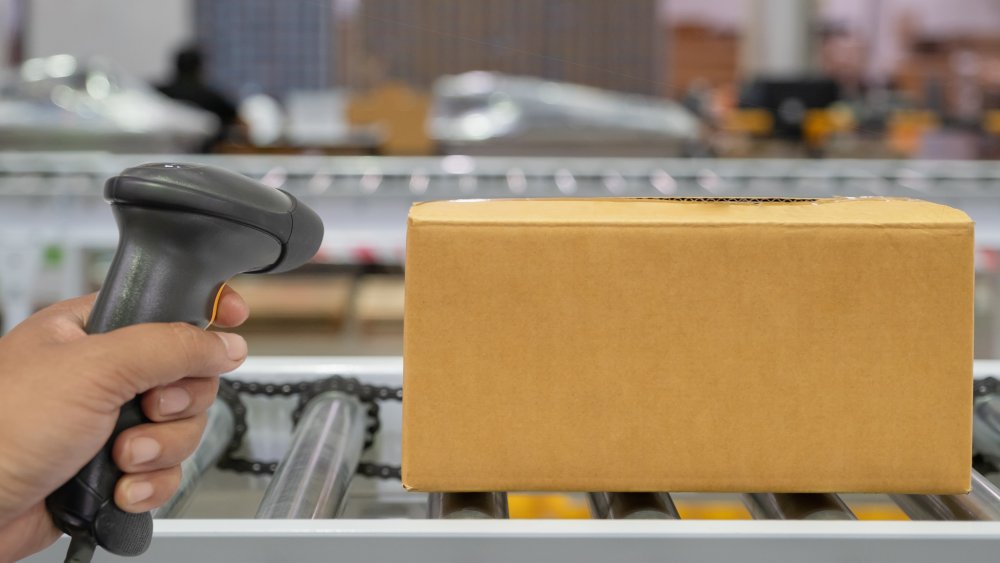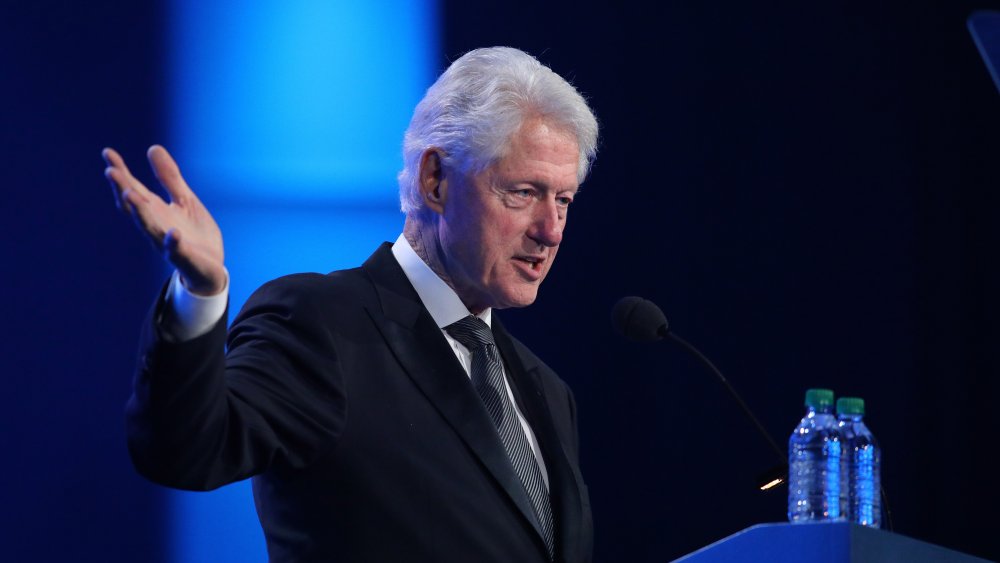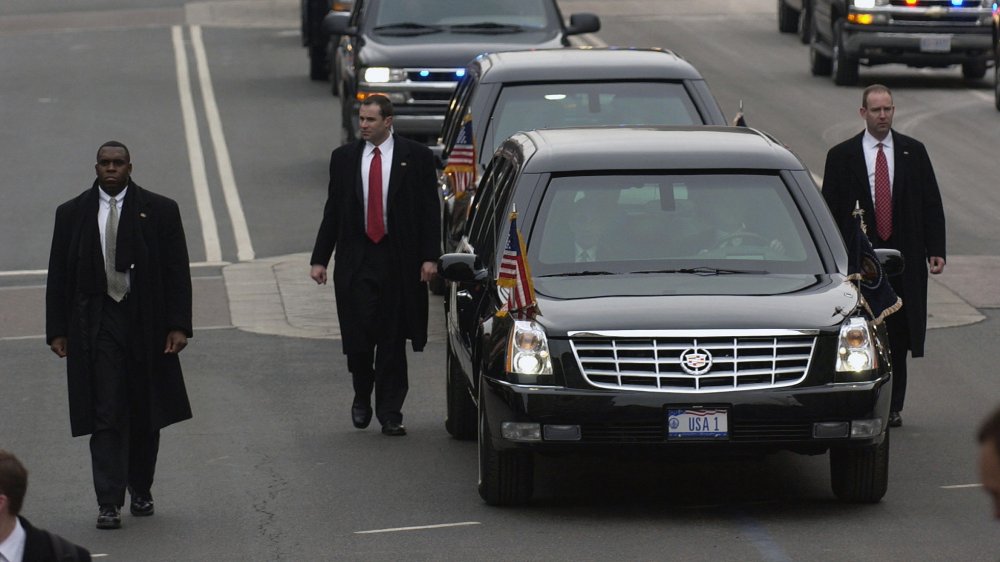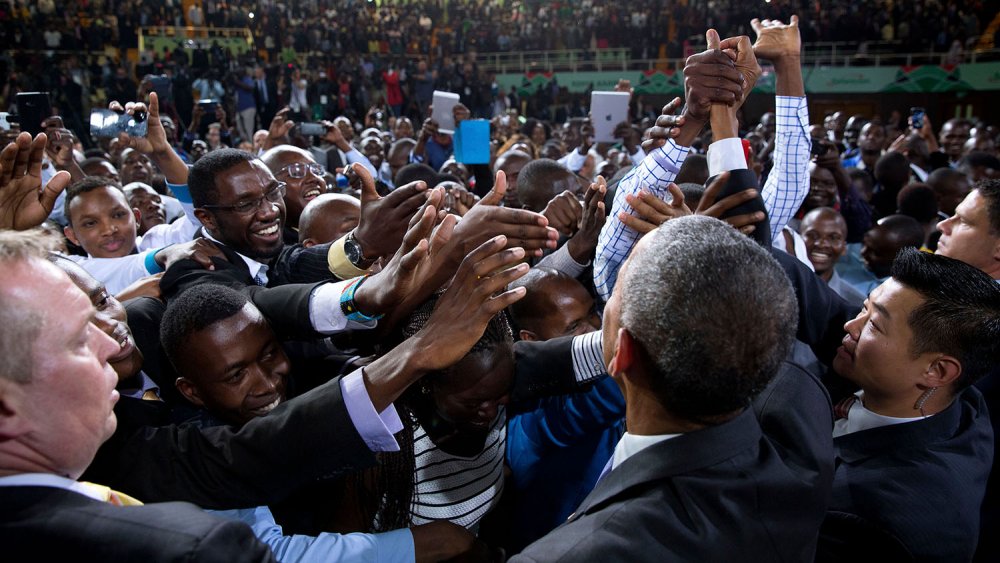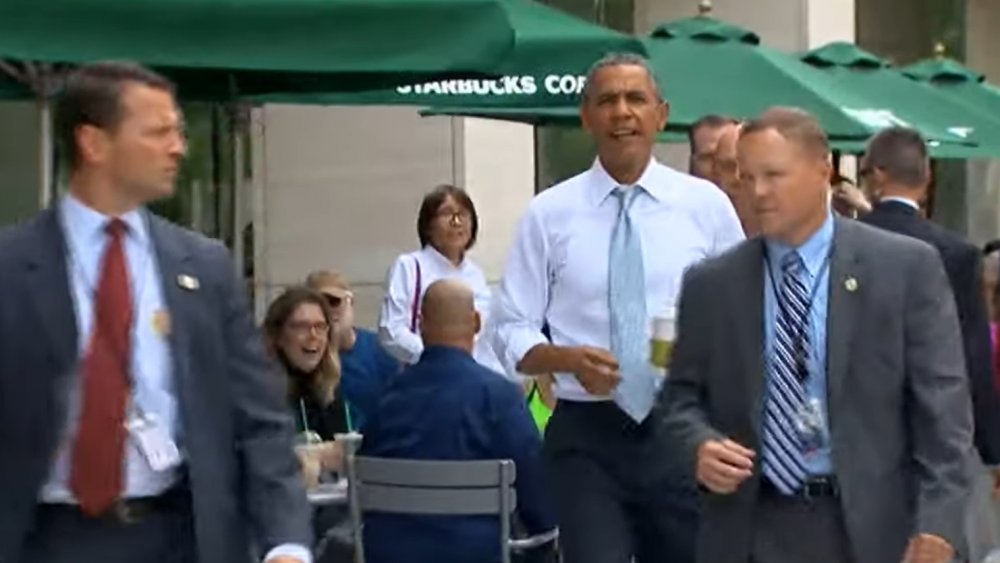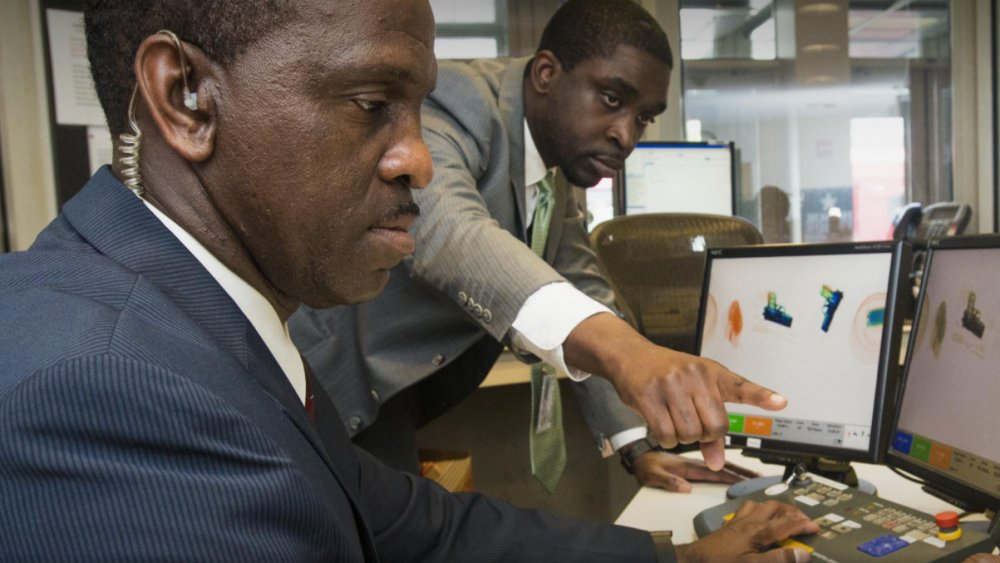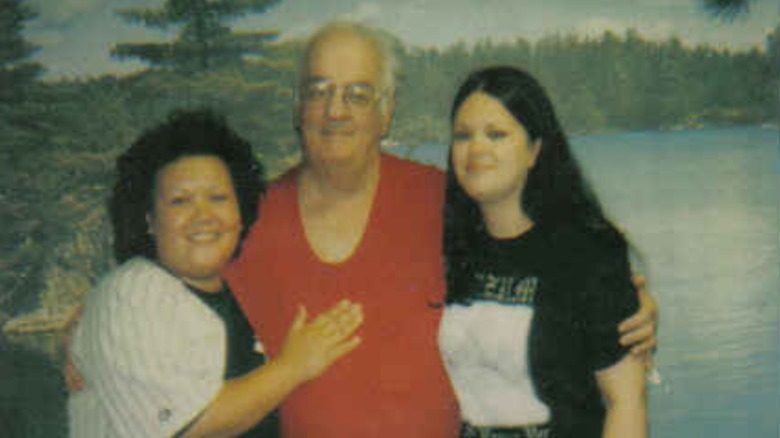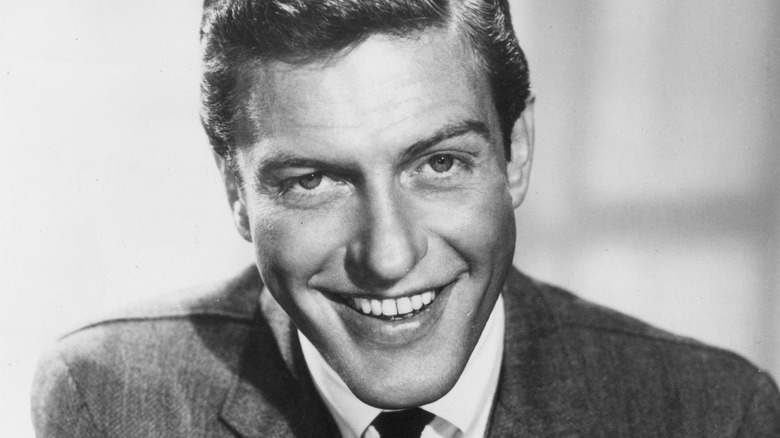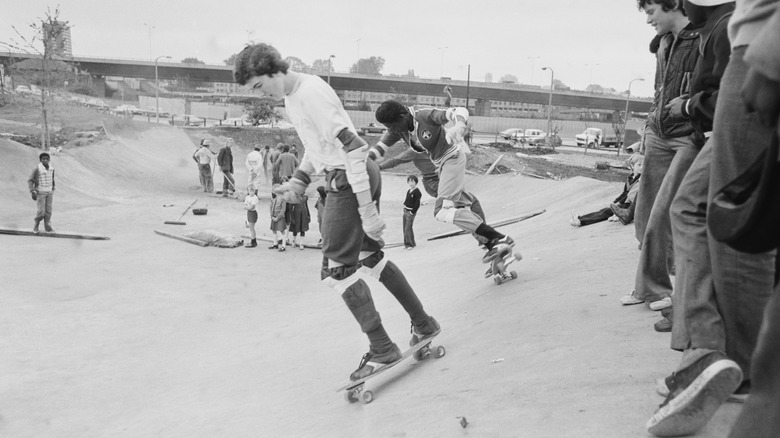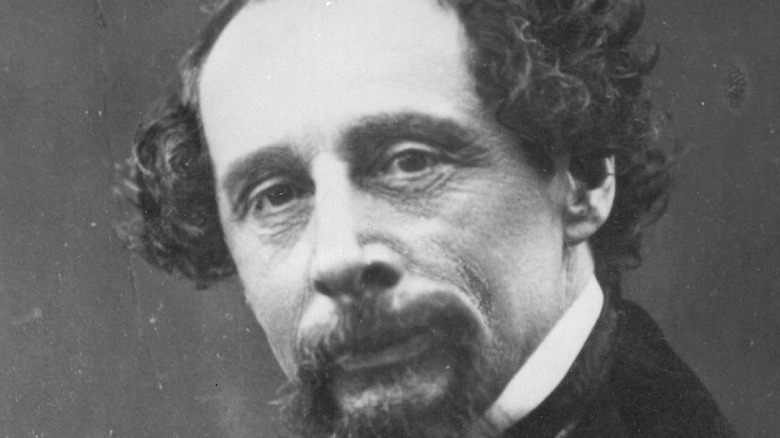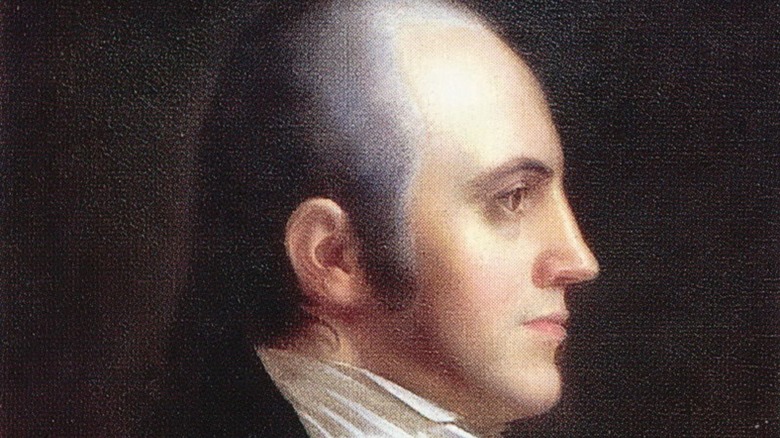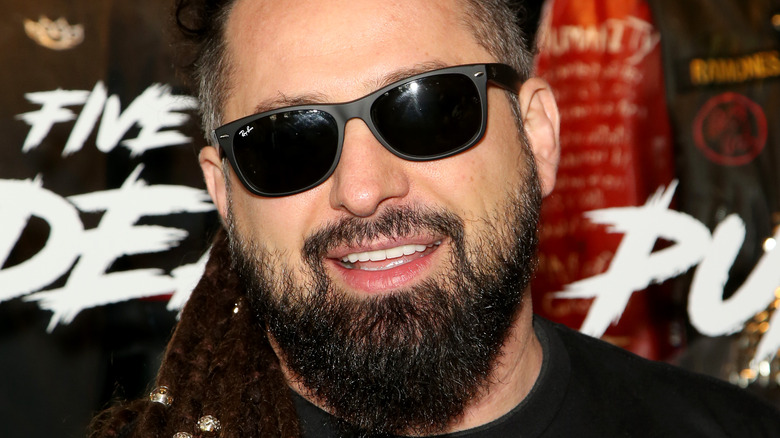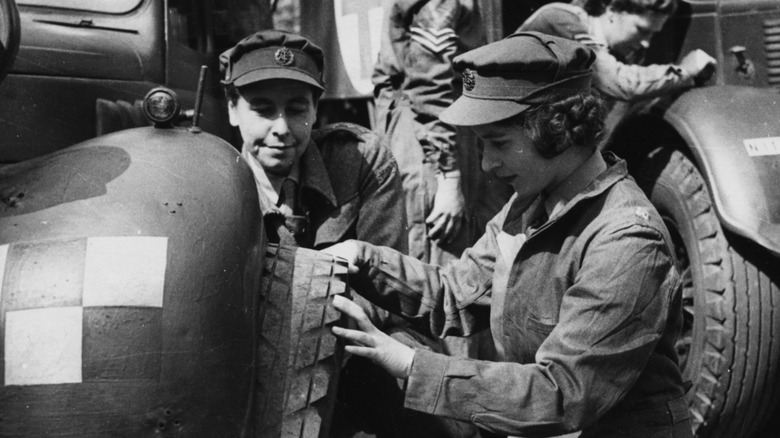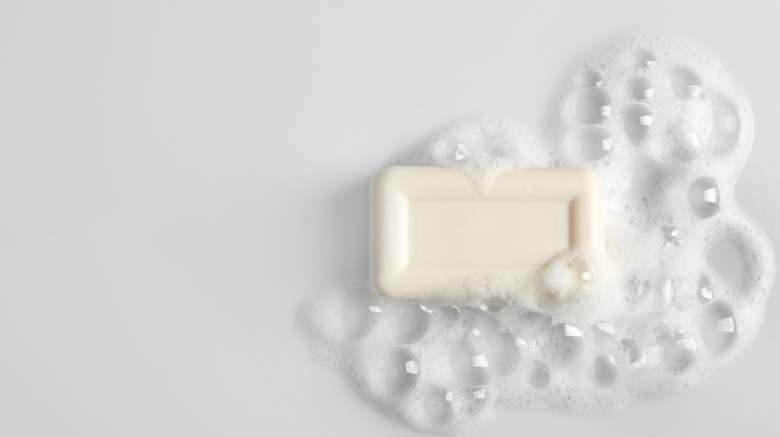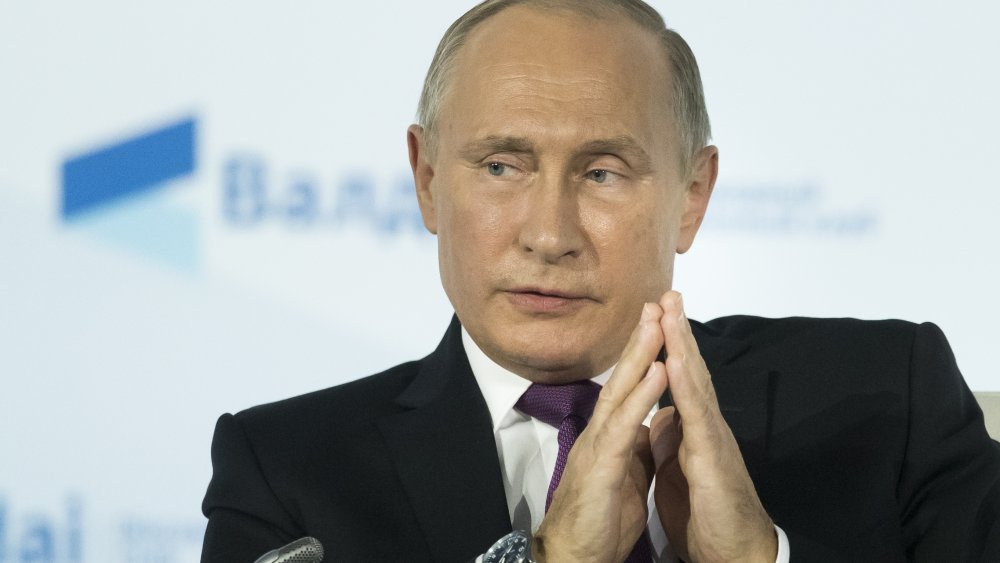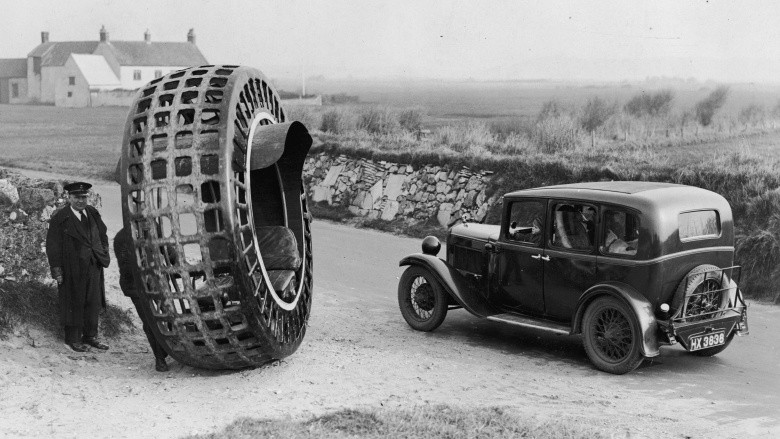
Rules Former Presidents Have To Follow
Being president of the United States is one of the most coveted jobs in the country, as evidenced by the many candidates we hear from every election year. Getting to choose the direction of the country is pretty appealing, even if it is a ton of work to both get the job and to actually do it.
But one thing no one tells you is that the job doesn’t stop when the presidency is over. Even former presidents are expected to do a lot, like attend events, raise funds, give speeches, and do tons of interviews about what it was like to be commander-in-chief.
The job also stays with them in other ways, too, because once someone stops being president, they’re part of an elite club of ex-presidents for the rest of their life, and that also comes with a lot of restrictions. Yeah, just because you were the commander-in-chief, that doesn’t mean you can do whatever you want. From driving cars to using cell phones, these are the rules that former presidents have to follow.
Former presidents aren't allowed to drive
One of the greatest perks of being president is not having to deal with traffic every day. For one thing, you’ve got drivers who can take you where you need to go, and for another, the Secret Service can block off traffic for you to ensure your security. It’s no fun for anyone else on the road, but hey, you’re the president, and you have important things to do.
There is a downside, though. Once a president’s term is over, they can never drive a car on an open road again. The reason is because of the lifetime Secret Service detail that all ex-presidents get. After all, one of the least safe places you can be is on the road, and that’s just under normal circumstances. Add in that ex-presidents are always a target, and things get even hairier. So, to ensure their safety, they’re not allowed to hit the road.
As George W. Bush explained to Jay Leno, he’s only allowed to drive on his own private property, far from any reckless drivers or people who wish him harm. He must be driven everywhere by Secret Service agents trained in “evasive and defensive driving maneuvers.” The rule was instituted after John F. Kennedy’s assassination in 1963. Lyndon B. Johnson was, to date, the last president to drive on public roads.
They still have to read national security briefings
One of a president’s most important duties is to be aware of any potential threats to the security of the United States. These briefings are carried out constantly throughout a president’s tenure, even multiple times a day if necessary, because the world is always changing and threats can come up unexpectedly.
You’d think former presidents would no longer need to be bothered about such things, since they’re retired from the job and are now private citizens, but you’d be wrong. They continue to receive national security updates for the rest of their lives. Not necessarily because they’re expected to actively do anything about them, but just in case they have advice they can offer the current administration or if they get asked about the situation by the press. Even if being president isn’t their job anymore, they still need constant updates about what’s going on.
This actually became newsworthy in 2018 when President Donald Trump allegedly threatened to revoke Barack Obama’s access to national security briefings. According to Newsweek, President Trump was rumored to be unaware that former presidents received the briefings and had to be informed that this was normal and nothing to be concerned over, though Trump later said these rumors were untrue. Whether or not it really happened, the story shined a light on just what kind of access ex-presidents have to day-to-day information about the country’s security.
Retired presidents must establish a presidential library
Have you ever noticed that everyone who serves as president gets a library named after them when they leave office? There’s a good reason for this — it’s a law. The 1955 Presidential Libraries Act established that each president would oversee the creation of a library in their name, according to The Washington Post.
While having a library named after yourself is definitely “#lifegoals,” presidential libraries are a little different. They contain every word a president has written in office (minus any classified materials, of course), even the stuff that may not be so good, such as Bill Clinton’s library in Little Rock, Arkansas, which features information about his impeachment scandal. They’re not allowed to keep certain materials out of their libraries, as anything created during a president’s term is legally considered to be public property. This was decided after disgraced President Richard Nixon attempted to leave out materials regarding the Watergate scandal that occurred during his time in office.
The individual presidents do have some control over how much of a certain subject is featured, though. For example, George W. Bush’s library in Dallas, Texas, does mention his invasion of Iraq, but instead of shying away from it, the materials on display defend his decision to go into a war that remains very controversial to this day.
They must have their calls and tech usage monitored
We all assume that the government (or big tech companies, in any case) is listening to everything we do these days, especially after numerous scandals have come up in the last two decades where the government was caught doing exactly that by surveilling U.S. citizens without a warrant.
The intelligence community has since tried to clean up its image by being more transparent about this, and it now requires warrants in many situations. However, the Secret Service often gets exceptions to these rules in cases relating to the security of current and former presidents. For example, according to The Hill, the Secret Service got an exception to warrant laws regarding “Stingray” devices that can monitor the location of cell phones, with the Department of Homeland Security arguing it was impractical to require them to obtain warrants to monitor the president and “other important individuals.”
While this particular device doesn’t monitor the contents of communications passed by the phones, this is just one of many techniques that law enforcement can use for surveillance, and the Secret Service has pretty sweeping jurisdiction over keeping former presidents safe, whether that’s from threatening phone calls, suspicious tweets, or anything in-between. Routinely monitoring a president or former president’s communications is an invasive but necessary activity the Secret Service has to undertake to ensure the security of those they are sworn to protect.
Former presidents must have their mail searched
Former presidents don’t have much privacy, and those snoopy Secret Service agents even get to paw through their mail. Yeah, that’s right. An ex-president’s regular old snail mail and packages must be examined by agents before they can be delivered. That may sound like overkill, but they’ve caught several dangerous deliveries by doing this, even as recently as 2018. According to Bloomberg Law, the Secret Service successfully identified explosives en route to former presidents Bill Clinton and Barack Obama, among other VIP targets.
And it’s not just a random agent shuffling through and opening the ex-president’s mail on the way back from their mailbox. It’s all screened off-site by trained security staff with knowledge of dealing with explosives, dangerous chemicals, and so on. Every mail piece is meticulously examined for any possible threats to the former president.
What’s more, the Secret Service agents aren’t the only ones keeping an eye on ex-presidential mail. The United States Postal Service also gets in on the act, as they monitor any suspicious packages sent through the mail — no matter who they’re going to — through a program called Dangerous Mail Investigations, which sounds like a pretty fascinating true crime documentary series or some sort of ticking clock procedural drama where harried postal workers only have 24 hours to solve the case of someone’s grandmother accidentally mailing out a box of damaged cell phone batteries.
They can't (technically) badmouth other presidents
If you’ve ever moved on from a job, taken a look at the doofus they replaced you with, and thought, “Wow, they’re just awful,” congratulations, you’re a normal, everyday person. Criticizing the people who held a job before and after you is a part of work life, and it can be both cathartic and helpful coming up with clever ways to say mean things about people you barely know.
Previous presidents don’t have this luxury, however. While it’s not an actual rule, an ex-president isn’t supposed to talk smack about any other presidents, according to an unwritten White House tradition that’s been passed down for centuries. Basically, retired presidents are expected to stay out of the affairs of the current president and also avoid saying anything untoward about any other former presidents, according to The New York Times.
You may have noticed this “rule” gets broken a lot. That’s actually a pretty recent phenomenon, only cropping up since the beginning of the 21st century. As partisanship has increased over the last two decades, the same has been true for former presidents openly criticizing whoever’s currently in charge, such as Barack Obama heavily criticizing Donald Trump in 2018. However, he hasn’t been the only one, and as harsher words for political foes continue to become more and more normalized, we’ll likely see this tradition disappear in the years to come. (We can only imagine the sort of things Trump will tweet once he leaves the White House.)
Ex-presidents can never go anywhere alone
Every so often, you just need some alone time. People take walks, seek out a quiet room, or whatever they need to find a little peace and quiet. If this is you, becoming president might be a bad idea because you’re literally never alone, and that continues even after you’ve left office. Secret Service detail is a 24/7 thing, and former Secret Service agent Jonathan Wackrow described presidential protection to NBC News as “the most intrusive thing that anyone could ever experience.”
Basically, you’re constantly surrounded by people you barely know, and since agents can be swapped out or moved around, ex-presidents are likely to be surrounded by strangers for the rest of their lives. And these agents don’t take a break when things aren’t going well, like when there are arguments between spouses. They’re by their protectee’s side at all times. No word if that includes bathroom breaks, but frankly, it seems pretty likely.
Agents are even with former presidents during holidays. Imagine not being able to eat Thanksgiving dinner without a bunch of people in black suits standing around you. This actually happened to Donald Trump when he was president-elect. When he and his family sat down to a holiday dinner at Mar-a-Lago, over 150 Secret Service agents were there too, since all of his family members who were in attendance had Secret Service details of their own.
They can't just do anything they want
While being one of the most powerful individuals in the world might seem like it would include the ability to do, well, pretty much anything you want short of robbing a bank or something, this isn’t necessarily the case. Because of that 24/7, 365 day-a-year Secret Service detail, it’s hard to be spontaneous. The Secret Service needs plenty of advance notice to prepare for any public outings, as their typical setup is to create multiple perimeter rings around their protectee, according to former Secret Service agent Jonathan Wackrow.
This means that anywhere you want to go typically needs to be scouted out days or even months beforehand to make sure the Secret Service’s security needs can be fulfilled. If it can’t meet that standard, there’s a good possibility the Secret Service might say it’s not possible. As Wackrow told NBC News, if the protectee disagrees with a security assessment, “We’re not going to just say okay. We’re going to actually push back.” It’s possible a compromise can be met, but safety and security always take precedence.
While security teams are trained to be able to think on their feet and make changes on the fly, anything that can be planned beforehand needs to happen to eliminate as many variables as possible. Being ahead of as many potential threats as possible is a huge part of the Secret Service detail’s job.
Everyday things become a big undertaking
If a regular person wants to pop down to Starbucks and get a grande cinnamon dolce latte or whatever, they just head that way, get their coffee, and get on with their day. Due to a former president’s large Secret Service detail, though, anything they want to do, even normal everyday stuff, becomes a huge undertaking. Think of something you like to do every day, like taking a walk or going out for dinner. Now imagine that you have to do that thing with an entourage of strangers disrupting everyone around you … for the rest of your life.
For example, President Barack Obama made a Starbucks run while he was still in office, and it ended up with the Secret Service blocking off much of the street and moving pedestrians away from the president. As captured by the Associated Press, dozens of agents and at least one Secret Service vehicle could also be seen. The president even asked the Secret Service to “give [him] a little space,” just a small indicator of how frustrating constant security must be.
Speaking of President Obama, he was a pretty notorious fan of playing games of pickup basketball, something he spent a lot of time doing while in private life and as a senator. Once he became president, though, the Secret Service told him that they needed four hours notice before such a game, which President Obama wasn’t terribly happy about, according to NBC News.
If a former president doesn't like the rules, there's one solution
So what’s a former president to do if they get sick of all these rules and stipulations they have to follow? Why even be president if you don’t get to spend your retirement years doing whatever you feel like, right? Well, there’s a way they can get out of having to deal with all of this and go back to how things were before they took office … by declining the Secret Service detail.
As it turns out, this is an actual option. The Secret Service only protects those who accept the protection. If a former president or anyone else with security detail waives those protections, they’re free to accept responsibility for their own safety and security, or maybe hire their own private security that might be willing to let them do more things without restrictions. Former president Richard Nixon actually did this in his later years, though the reason he gave was to save the government some money, according to The New York Times.
Then in 2017, President Trump’s son, Donald Trump, Jr., willingly declined Secret Service protection, as reported by The New York Times, citing privacy as his reason for doing so. While the Secret Service heavily discourages protectees from choosing to do this, it’s absolutely an option if a president ever wants to drive their own car again.
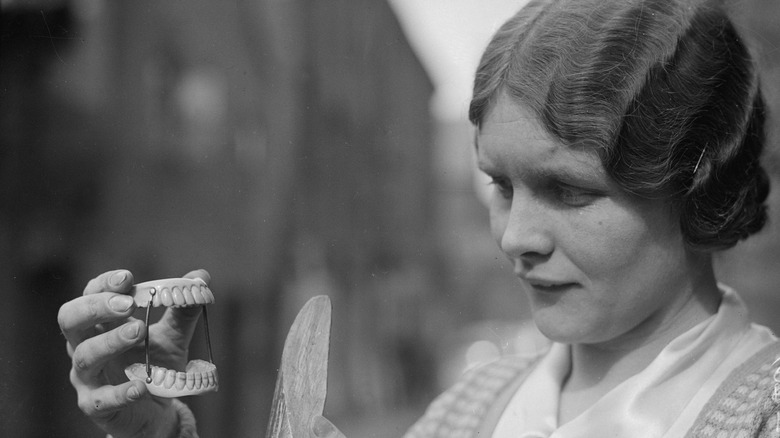
The Surprising Reason Rotting Teeth Was Once A Sign Of Wealth
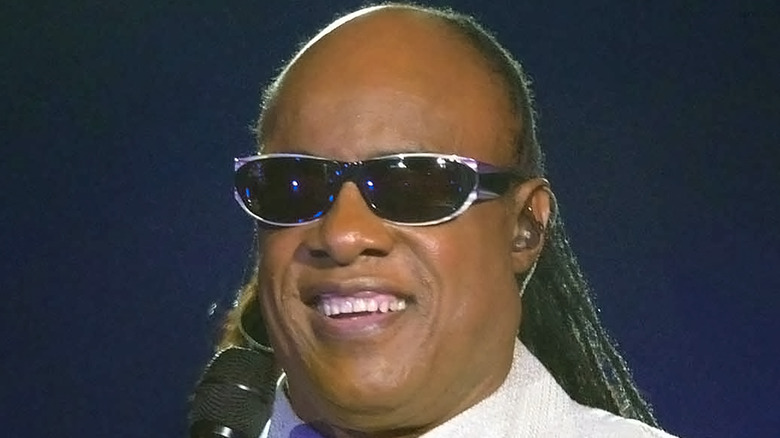
The Stevie Wonder Conspiracy Theory That Would Prove He Can See

The Truth About The Newly Discovered Sea Star Whose Body Is Covered In Teeth

Chilling Ways The Sinking Of The Titanic Was Foreshadowed

The Aye Aye's Nightmare Fingers Just Got Weirder

Drummer For Rush Dies At 67

What Really Happened To Van Gogh's Ear?

Hotel Hiring 'Fur Butler' Pays You To Chill With Bernese Mountain Dog

The Insane True Story Of The Craziest Rocker In History

Crazy Crimes That Deserve Their Own Movies

